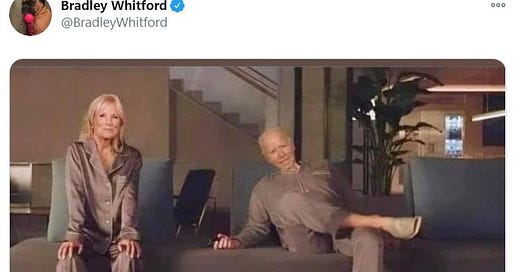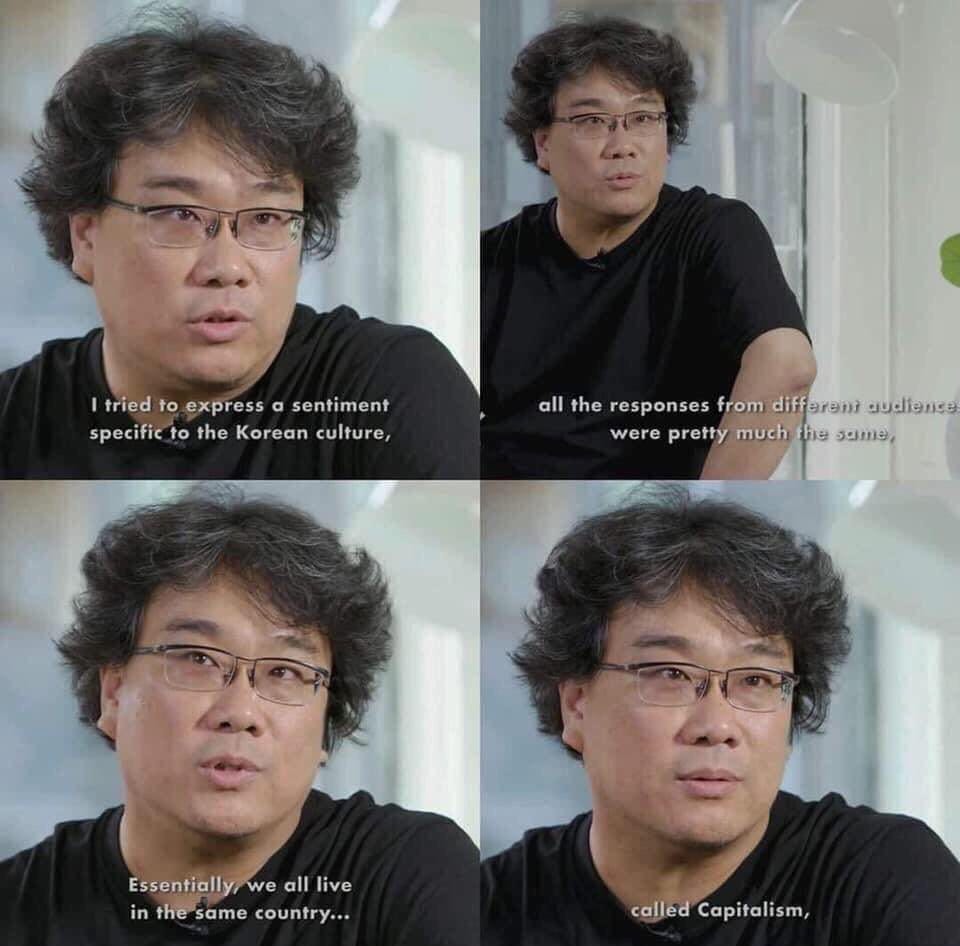why Aaron Sorkin owes me a personal apology
also accepting apologies from Bradley Whitford if he's available
Hi friends! Long time no talk. My singular brain cell was really giving it her all over the last two months, and I’ve decided it’s time now for me to actually use this newsletter for its expressed purpose: to self-publish hot-to-lukewarm takes that editors, in all their wisdom, didn’t want to pay me for. (Again: my Venmo is @lexi-mcmenamin and I’m taking tips all week/year/lifetime until I get health insurance haha! Ha. Ha.)
This week’s Take was inspired by one of my greatest foes, Bradley Whitford of West Wing fame, who posted a colossally bad free take of his own on Twitter this week.
I, too, love understanding the plot of cinema!
I’m an American politics student who did not watch The West Wing growing up, apparently a very rare bird. Alas, my parents were crime procedural people. My parents also weren’t very interested in palace intrigue, too busy trying to survive the policies put in place from on high. Watching some self-righteous pricks walk-and-talk wouldn’t help them unwind for a spare hour after my younger brothers went to bed.
Instead, I ended up starting The West Wing while working a soul-sucking campaign job during the 2018 midterms, ostensibly to “get out the vote” in New Hampshire but really to staff a data-collection operation for a billionaire who would later launch a presidential campaign and “purchase” that data from himself. The West Wing was recommended to me because it upholds the hokey valorization of New Hampshire as the home of true American politics: President Bartlett, played by Martin Sheen, was the former New Hampshire governor, called Manchester home, and would start inane squabbling over which northern New England state could take credit for the best maple syrup.
I was living alone, working a job I hated, underpaid, with an abusive boss calling me at all hours. The characters of The West Wing became my main companions – even though those characters would’ve told me my job wasn’t anything to complain about.
The West Wing (or at least, its first four seasons) are a creation of Aaron Sorkin, who cast himself as the protector of democratic liberal values in pop culture decades ago. It’s since become my Emotional Support Show. I watch not at all for the politics – I watch in spite of the politics – but because the characters have nestled firmly in my brain. Sorkin’s writing can do that, at its best. Since my years as a bitchy bookish teen desperate for fast-talking drama, I’ve watched a pretty large chunk of his oeuvre and enjoyed the Sorkinism; but as I became more politically aware, I also grew to resent the moral superiority, and intellectual vapidity, of his work.
Both of his most recent ventures show how intrinsic, and unquestioned, his political values remain. A generation was raised believing a lie – that the system would work for them, if they just played nice – and this lie is being proven for what it is in 2020. Why, then, are we giving so much clout to someone who taught us to believe it in the first place?
On Thursday, October 15, the cast of The West Wing reunited alongside celebrity friends to perform a staged version of a past episode, in support of Michelle Obama's When We All Vote organization. During the special, in one PSA-style interlude, Dulé Hill, an original cast member, and Sterling K. Brown, brought on for the special, read off lines about the need for Black men to vote given 2020’s racial unrest; in another, Hill, 45, as the youngest regular cast member, along with Elisabeth Moss, 38, youngest supporting actor, winkingly preach to “young voters.” The weekend following the premiere of the reunion, Sorkin’s cinematic rendering of the Chicago 7 premiered on Netflix to plenty of derision from Twitter users more familiar with the historical figures bastardized in the film, particularly over his depiction of Abbie Hoffman. (Instead of going long on that here, check out Current Affairs’ Nathan Robinson on the movie.)
Aaron Sorkin is, in my opinion, a talented writer of interpersonal conflict and friendship. He also holds responsibility for the lack of imagination in popular depictions of politics. I was reflecting on all this while trying to vote, a process that – if you hear Sorkin tell it – should be easy. Throughout the West Wing special, the presumably very wealthy actors repeatedly and gratingly remind the viewer of the ease and simplicity and responsibility of voting. Because of registration confusion across three states (one of which being, natch, New Hampshire), I had to drive 6 hours roundtrip in order to vote in person on the Sunday before the election. I am a cis-passing, occasionally straight-passing white person, with relative economic security from a solidly working-class background. I have a degree in politics. I have literally worked in voter registration, for Christ’s sake. And I still couldn’t vote without jumping through a series of increasingly absurd hoops.
Aaron Sorkin would offer me a lecture on the virtues of suffering for good, but I’m guessing Sorkin didn’t have to drive by a Trump parade on the highway stretching for two consecutive exits. His characters would celebrate it as an act of democratic participation.
Why not make something better? This story sucks. I don’t need it tied up with a pretty bow – I need a different story.
(This is a Bong Joon-ho stan account.)






